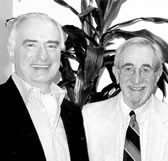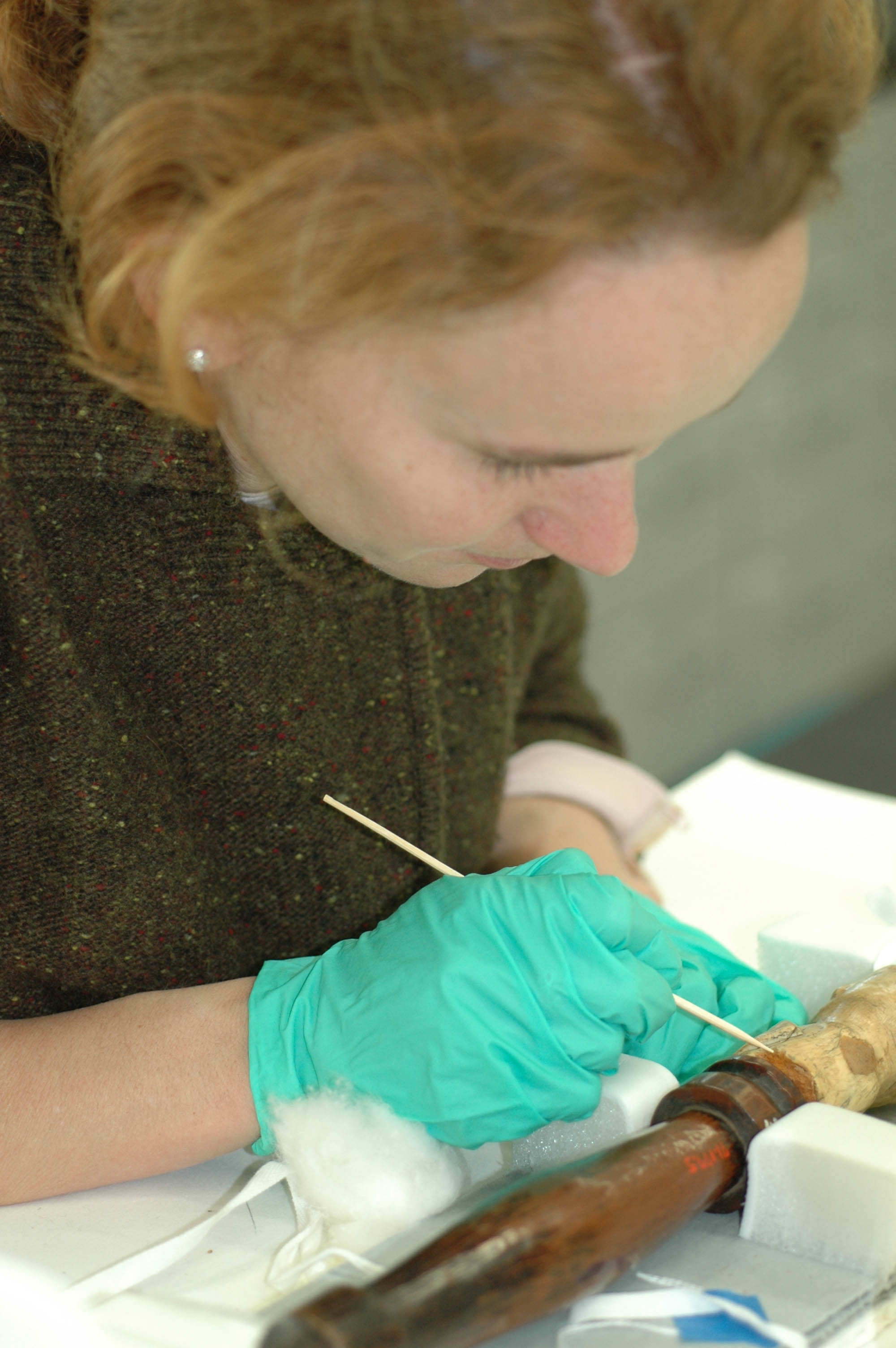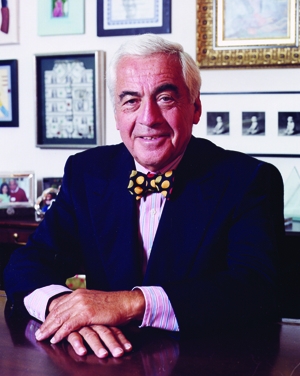History
In 1969, a faculty committee recommended the formation of an archaeological institute at UCLA to “coordinate, facilitate, promote and expand archaeological research [on campus], and to provide opportunities for the advanced training of qualified students.”
In 1973, the Institute of Archaeology was created at UCLA and was housed in Kinsey Hall (now named Humanities Building). The words of the founding Director, Giorgio Buccellati (Professor Emeritus of Near Eastern Languages and Cultures), still hold true decades later: 
The scope of its research interests reaches as far as there is something to recover from the soil which is meaningful for the understanding of our cultural past. In the pursuit of this goal we are creating, here at UCLA, something which is in line with the best archaeological tradition and yet is, at the same time, unique on the American scene. We do excavate in many parts of the world … as other institutions also do. We have a variety of leading scholars in the field … as other institutions also have. We offer a comprehensive program of instruction … as other institutions are also offering. But we go one step beyond.
The crucial difference is that we can talk to each other — anthropologists and humanists, ecologists and classicists, historians and prehistorians, and so on. From this a new school of thought is slowly emerging, which is giving flesh and blood to the ideal of a comprehensive interdisciplinary reconstruction of the human past. We are truly an Institute of Archaeology, writ large, without parochial limitations of geography or methodology.
In spite of limited funding in the 1970s and 1980s, the Institute established a number of research, training, and outreach initiatives that continue today. These initiatives include the formation of the Cotsen Institute Press (formerly the Publications Unit), the development of the Public Lecture Series, and the initiation of various internal events that have since been institutionalized. For example, every Wednesday at lunch during the academic year, graduate students, UCLA faculty or visiting scholars give presentations of ongoing research at our Pizza Talks. These informal lectures, followed by discussion, spark exciting dialogue and are used to update our Institute affiliates and volunteers on new project developments.
In an effort to highlight ongoing archaeological research and inform donors and scholars of Institute news and happenings, a newsletter entitled Backdirt was developed by then Director Merrick Posnansky (Professor Emeritus of Anthropology and History) and several volunteers. The first issue was printed in 1985 and continues to be produced by the Cotsen Institute Press today. Backdirt now serves as the Institute Annual Review. In full color and over 90 pages long the publication illustrates the activities and research at the Institute to scholars, affiliates, volunteers and supporters.
In 1990, after outgrowing its small area in Kinsey Hall, the Institute relocated to its current location in the Fowler Building. With an entire floor available, the Institute established 17 laboratories for regional field research projects and specialized analysis of archaeological materials, classrooms, computer facilities, a teaching lab and Publications Office, conference rooms, and administrative offices. This new space allowed archaeologists and their colleagues across campus to interact and collaborate in a dynamic setting.
In keeping with a longtime tradition of fostering an intellectually stimulating environment for Institute affiliates, the Seminar Series on Archaeological Theory and Research was launched in 1994 while Richard M. Levanthal was the Director. The series, now organized by the Archaeology Program graduate students, brings guest speakers from around the world to present their research based on a methodological or theoretical theme for the quarter. These seminars promote scholarly discussion within the UCLA archaeology community, and continue to be held for Institute affiliates during the academic year.
A THRIVING ENVIRONMENT
In 1999, the Institute of Archaeology honored the longtime support of Lloyd E. Cotsen by changing its name to the Cotsen Institute of Archaeology. With the $7 million endowment, the Cotsen Institute developed many programs for graduate education and faculty research.
Today, as an interdisciplinary research unit, the Cotsen Institute brings together over 30 faculty members from 11 departments at UCLA and more than 60 Research Associates. A number of outside scholars participate in Cotsen Advanced Seminars and our visiting scholar programs, promoting dialogue and interaction within the greater archaeological community.
With archaeological research that spans the globe, three lecture series, a postdoctoral fellowship, and two interdepartmental graduate programs—UCLA Interdepartmental Archaeology Graduate Program and UCLA/Getty Interdepartmental Program in the Conservation of Cultural Heritage—the Cotsen Institute continues to be a stimulating intellectual environment.
THE FUTURE
Marking what was at the time the largest individual donation in the history of the UCLA College of Letters & Science, the $10 million gift from Mr. Cotsen pledged in 2006 is intended to create the Cotsen Undergraduate Scholars Program to support undergraduate research, enhance the Cotsen Graduate Fellowship Program, establish the Lloyd Cotsen Research Prize for junior and senior archaeologists, launch the UCLA Archaeology Field Program globally in a first-time effort to standardize archaeological field training on a large scale, support the Cotsen Institute Press to bolster excellent archaeological publishing, augment faculty recruitment resources, and create the Cotsen Opportunity Endowment, a discretionary fund to be used by the Institute Director to implement innovative programs promptly.
“This gives the Cotsen Institute the largest de facto endowment in the world for the study of archaeology. Through his generosity, Lloyd Cotsen has ensured that archaeology at UCLA will thrive indefinitely, allowing us not only to study and preserve our global heritages, but to change people’s lives positively through the practice of archaeology,” said Charles Stanish, former Cotsen Institute Director.



